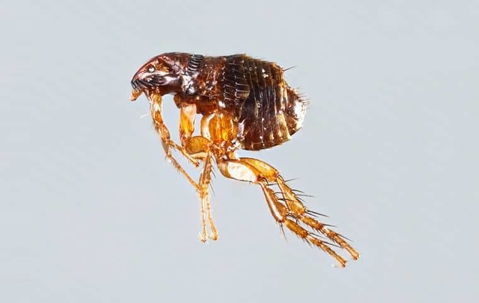If you have a flea problem in your home, look no further than Go-Forth Home Services for the best pest control in Richmond. Fleas are parasitic flightless insects whose strong hind legs lend themselves to jumping from host to host. The vast majority of fleas feed on mammals. This might include you, your family, and especially your pets. Cats and dogs can easily get fleas that hide in their fur. When pets that have picked up fleas enter the home, they can inadvertently bring fleas in with them.
Fleas do not cause property damage per se. However, they can be a tremendous irritant to people and animals. In some cases, these insects can even spread diseases. In this blog, we'll explain what to look for to help determine if you have a flea problem. We'll also delve into some of their health risks and the best ways to get rid of fleas.
How Can I Tell If I Have A Flea Infestation In My Home?
The single best way to determine if you have a flea infestation is seeing these tiny insects. Fleas appear like small dark specks. In addition to observing the actual fleas, you may also observe one or more of the following unfortunate side effects of a flea infestation:
- Your feet, ankles, and shins become covered with lines of itchy red dots.
- Your dog manifests one or more of the following flea symptoms: pale gums, relentless scratching, and biting hindquarters.
- You find flea dirt (flea feces) left behind. These are small black specks often found in pet fur or bedding areas.
- You come across flea eggs on your pets or their bedding or in your carpet, drapes, or furniture. Flea eggs look like salt.
Be on a close lookout for these telltale signs. The earlier you spot them, the sooner you can work towards a solution to the flea infestation.
Why Having Fleas In Your Home This Winter Is A Health Risk
Fleas are more than just parasitic insects that cause you and your pets discomfort. Flea bites can trigger FAD, or flea allergy dermatitis. The symptoms of this allergic reaction can extend beyond simple irritation and redness. It can even bring about serious secondary infections.
In addition to allergic reactions caused by flea bites, these troublesome insects can also spread the following flea diseases: typhus, plague, cat scratch disease, and flea-borne parasites such as tapeworms.
Winter generally means more time inside for both you and your pets, leading to more eggs being laid in the house instead of outside. Winter is a time when infestations can really get out of control.
Easy And Effective Flea Prevention Tips For Your Home This Winter
While the consequences of a flea infestation often cause discomfort, fortunately, you can take the following steps to prevent fleas from taking hold in your home:
- Remove entry points to your home: this entails replacing torn window screens and repairing cracks in the exterior.
- Vacuum carpeting and rugs on a regular basis
- Wash sheets and other bedding frequently.
- Bathe your pets and keep their bedding clean.
- Clean affected areas with steam and pet-friendly flea sprays.
- Work with your veterinarian to keep pets treated for fleas year-round.
Beyond taking these precautions, call the experts for a complete flea extermination and exclusion plan.
The Best Way To Eliminate A Flea Infestation In Your Home
If you are dealing with a flea infestation in your home, Go-Forth Home Services can help you and your family. We have been providing pest control solutions of all sorts to the people of the greater Richmond area since 1959. We utilize industry-leading extermination equipment, and our expert technicians have decades of experience dealing with flea control. Call today to schedule an appointment and make your flea infestation a thing of the past.

